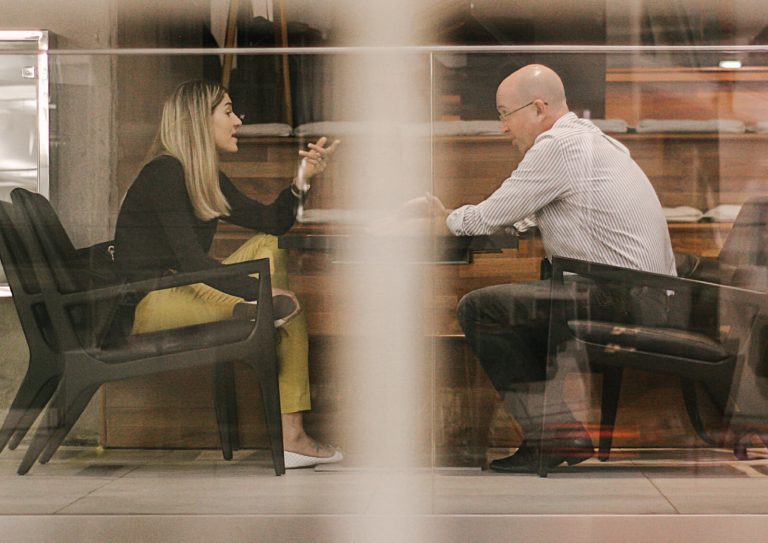You know how it goes: You’ve had a great business win, but you tell yourself that it was sheer chance the client found you. A promotion? They must have been short on candidates. You’re the most qualified person in the room, but deep down, there’s a sense that you don’t deserve to be here, and it’ll all be over when they catch on. It can be completely derailing, so how do you deal with these feelings of self-doubt or of being an imposter?
Imposter syndrome is real. It’s a psychological term referring to a pattern of behaviour where people suffer from self-doubt. They doubt their accomplishments and have a persistent, internal fear of being exposed as a fraud.
While it’s not an actual disorder, the term was coined by clinical psychologists Pauline Clance and Suzanne Imes in 1978, when they found that, despite having adequate external evidence of accomplishments, people with imposter syndrome remained convinced that they didn’t deserve the success they had.
Men are not immune to it, but women in the workplace are far more likely to experience it. Feeling like an imposter is closely linked to gender stereotypes that suggest women don’t have the same capabilities as men in particular working environments. Even children can suffer from imposter syndrome.
The irony is: those who deal with this crippling self-doubt tend to be the highest achievers. If this is you, you’re in good company.
Michelle Obama, former Facebook CEO Sheryl Sandberg and award-winning comedy writer Tina Fey are reported to understand this internal derailment. Even Einstein supposedly said, “The exaggerated esteem in which my lifework is held makes me feel very ill at ease. I feel compelled to think of myself as an involuntary swindler.”
Unfortunately, feeling like a fraud doesn’t get any easier alongside career promotions or overall success. In fact, often it can exacerbate it. Dealing with it is about being able to manage the mind with an effective toolkit, which can alleviate feelings of self-doubt.
Here are some tools that might help:
1. Keep a brag folder
A portfolio, a spreadsheet, emails from clients, employees or employers – document all of it.
Keep a file where you can remind yourself that you can do it, that you matter and that your work matters. Victories, whether big or small, should all be celebrated, and they have all added up to help create the magnificent talent you are.
When you feel a little wobbly, read your brag file to remind yourself you’re better and stronger than you think.
2. Journal all the times you succeed
Write it down. There’s a surprising amount of power to seeing it on paper.
Go through all the roles and jobs and wins you’ve had. Ask yourself, what did you know in the beginning about that role, job or company? What did you know at the end? What was the takeaway?
Really challenge yourself – if you had to make the case that it wasn’t just a fluke, then what did you do to impact the outcome? Every single piece of the puzzle constitutes learning and skill building – you directly created this success, and you can do it again in the future.
3. Control what you can, let go of what you can’t
Preparation, preparation, preparation.
One of the key nixes to shaky confidence is to be prepared. Ask for help when you need it, from a trusted colleague, manager or mentor. Rather than fearing any gaps, do something about addressing them.
Prepare for the small chunks of a big project, prepare for the long journey, prepare for the win. And if you don’t win? That’s okay. It happened to Einstein too.
4. Stay curious
Everyone should forever strive to be a student – we are forever students of life and there’s always something to learn.
Accept that we are all a work in progress, and that learning makes us stronger. For example, yoga practitioners will always refer to a ‘yoga practice’ – that is, they are always practising, learning about each pose, about aspects of meditation and about the body.
Don’t forget: failure will always be part of any learning process. It can also drive our future strength and resilience. There will always be projects we don’t get across the line, deadlines we miss, roles we leave. Failing, losing and being wrong on occasion are all part of our jobs and part of life.
Being OK with our failures, and even being up front about them, can show leadership. Don’t let it define you in a negative way. Learn from your mistakes and move forward.
Talking to someone about your feelings of self-doubt can be extremely helpful. Our trained counsellors are experienced in helping our clients through a range of workplace and professional challenges, including offering support for those suffering from self-doubt or imposter syndrome.
Related Services & Workshops

Accidental Counsellor
Accidental Counsellor is a workshop to assist people who aren’t trained counsellors, but often find themselves in a counselling role “by accident”. You’ll learn how to support clients, friends, family, colleagues, and strangers in distress or experiencing a crisis.

Counselling.Individuals.Older People.LGBTQIA+
Individual Counselling
Life can be full of ups and downs. While we may be able to overcome most challenges by ourselves, sometimes we need some extra support. Individual Counselling offers a supportive environment to identify and manage problems and concerns.






